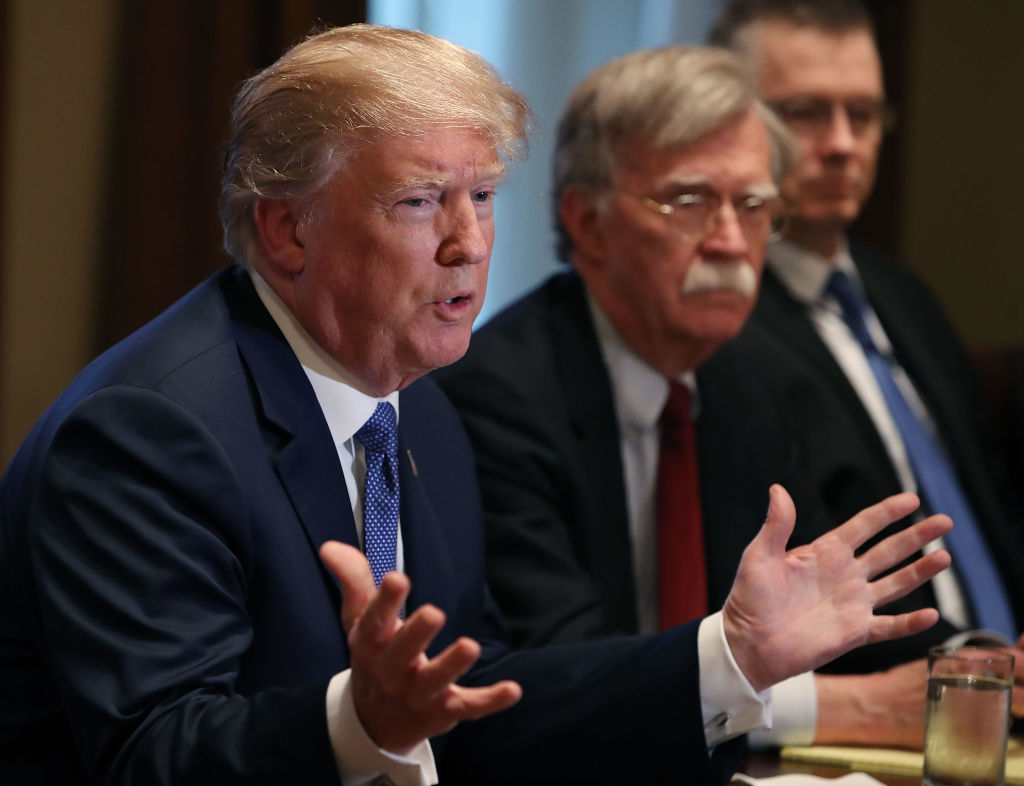Former President Donald Trump’s national security advisor John Bolton announced Friday that he is planning to run against Trump in the 2024 presidential elections.
“I would get in to win the nomination and I would do it primarily on the basis that we need a much stronger foreign policy,” Bolton told Noah Phillips, North America correspondent for the British news show Good Morning Britain, on Friday.
Donald Trump’s former national security advisor John Bolton has told us that he will run for US President in a bid to stop his former boss from getting back into the White House. pic.twitter.com/ZY66AFQ2od
— Good Morning Britain (@GMB) January 6, 2023
“I think it’s important that it’s understood not just in Moscow, but it’s understood in places like Beijing, that unprovoked aggression against your neighbors is not something the United States and its allies will tolerate,” Bolton further said.
Bolton criticized Trump, who will be one of his competitors for the Republican nomination, saying Trump’s support within the party remains in “terminal decline.”
Defending his suitability as a candidate in the presidential elections, Bolton said, “I wouldn’t run as a vanity candidate.”
“If I didn’t think I could run seriously, then I wouldn’t get in the race,” he added.
Over the course of his political career, which goes as far back as the Reagan administration, Bolton cultivated the reputation of a foreign policy hawk advocating for U.S. military action and regime change interventions in Iran, Syria, Libya, Venezuela, Cuba, Yemen and North Korea.
During President George W. Bush’s 2003 war against Iraq, Bolton served as the U.S. ambassador to the United Nations.
In 2018, Trump appointed Bolton as national security advisor to fill in the vacancy left by Michael T. Flynn. The former president would later give Bolton the nickname “Mr. Tough Guy.”
However, Bolton’s stint as national security advisor would prove to be short-lived after Trump fired him in September 2019.
In the Twitter post announcing the advisor’s dismissal, Trump wrote that he had informed Bolton the previous night that “his services are no longer needed at the White House” and that he and Bolton had disagreements on many of the latter’s suggestions. Bolton resigned a day after Trump’s comments.
Bolton would later publish a book called “The Room Where It Happened” — copies of which had been leaked during the 2019 impeachment of the president — making bombshell allegations about Trump’s foreign policy and his relations with China and Russia, drawing blowback from the president and his supporters.
Wacko John Bolton’s “exceedingly tedious”(New York Times) book is made up of lies & fake stories. Said all good about me, in print, until the day I fired him. A disgruntled boring fool who only wanted to go to war. Never had a clue, was ostracized & happily dumped. What a dope!
— Donald J. Trump (@realDonaldTrump) June 18, 2020
University of New Haven professor of political science Joshua Sandman told Newsweek that Bolton’s chances of winning the 2024 GOP nomination remain slim to nonexistent.
“Bolton, in Republican politics, does not have much political visibility outside a narrow group of people interested in foreign policy issues,” Sandman said.
“It would be very difficult to take the spotlight from Trump, [former Vice President] Mike Pence, Ron DeSantis or other more broadly known Republicans contenders,” he added.
University of Dayton assistant professor of political science Christopher Devine agreed with Sandman’s assessment, according to Newsweek.
“[Bolton] has no base of support within the Republican Party, and has never run for elected office,” Devine told Newsweek.
“Even in a wide-open field, it would be very difficult for him to win the nomination. But with Donald Trump also running, as a former president who is still widely popular in the Republican Party, Bolton has little hope of coming in first,” Devine said.
According to Dr. Rob Goodman, political theorist and assistant professor at Toronto Metropolitan University’s Department of Politics and Public Administration, Bolton’s emphasis on aggressive foreign policy isn’t “very popular in the Republican Party or in the country as a whole.”
“In general, foreign policy just doesn’t drive that much support one way or the other when it comes to primary elections or to public opinion in general,” Goodman told Newsweek.
This article appeared originally on The Western Journal.














 Continue with Google
Continue with Google